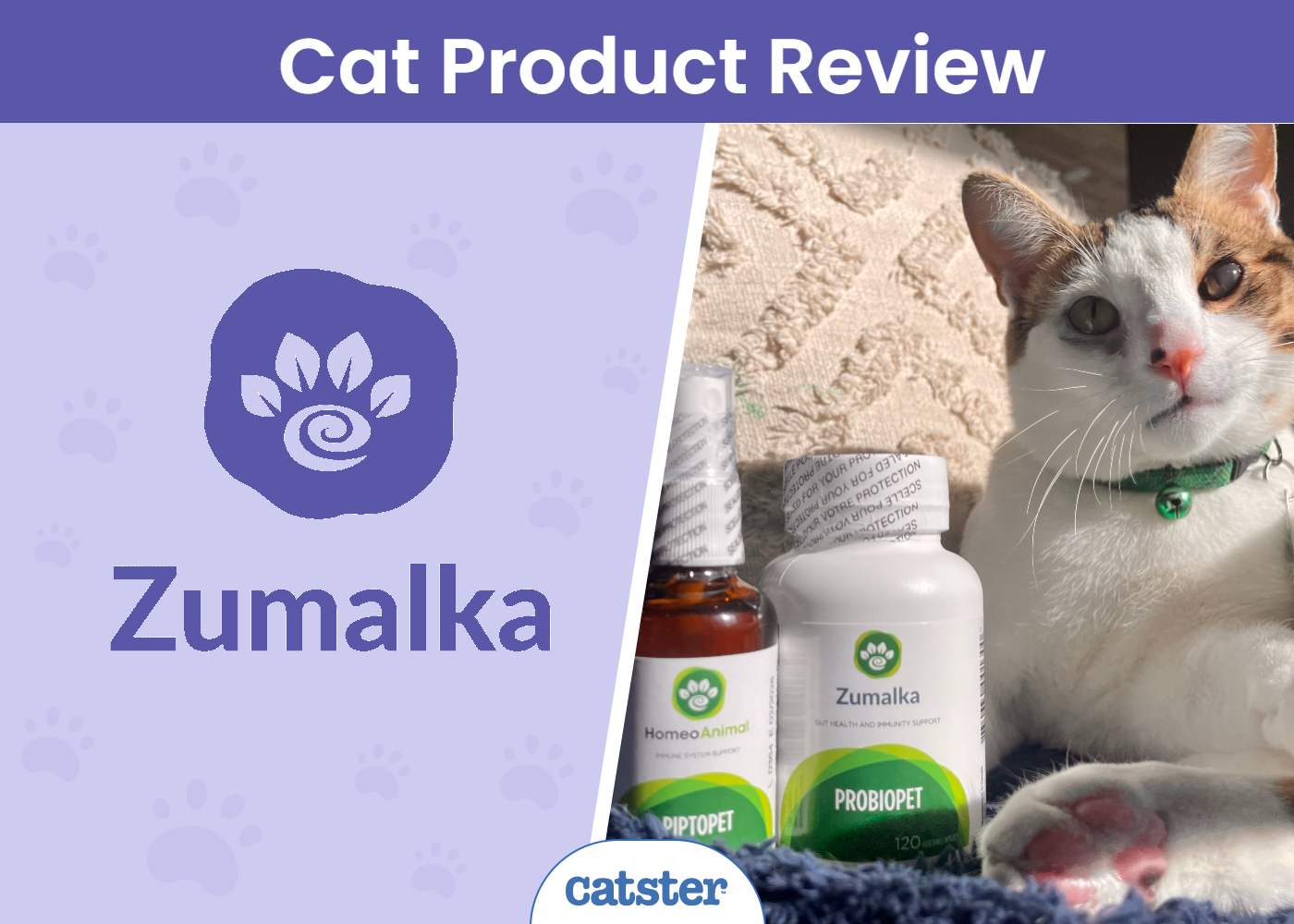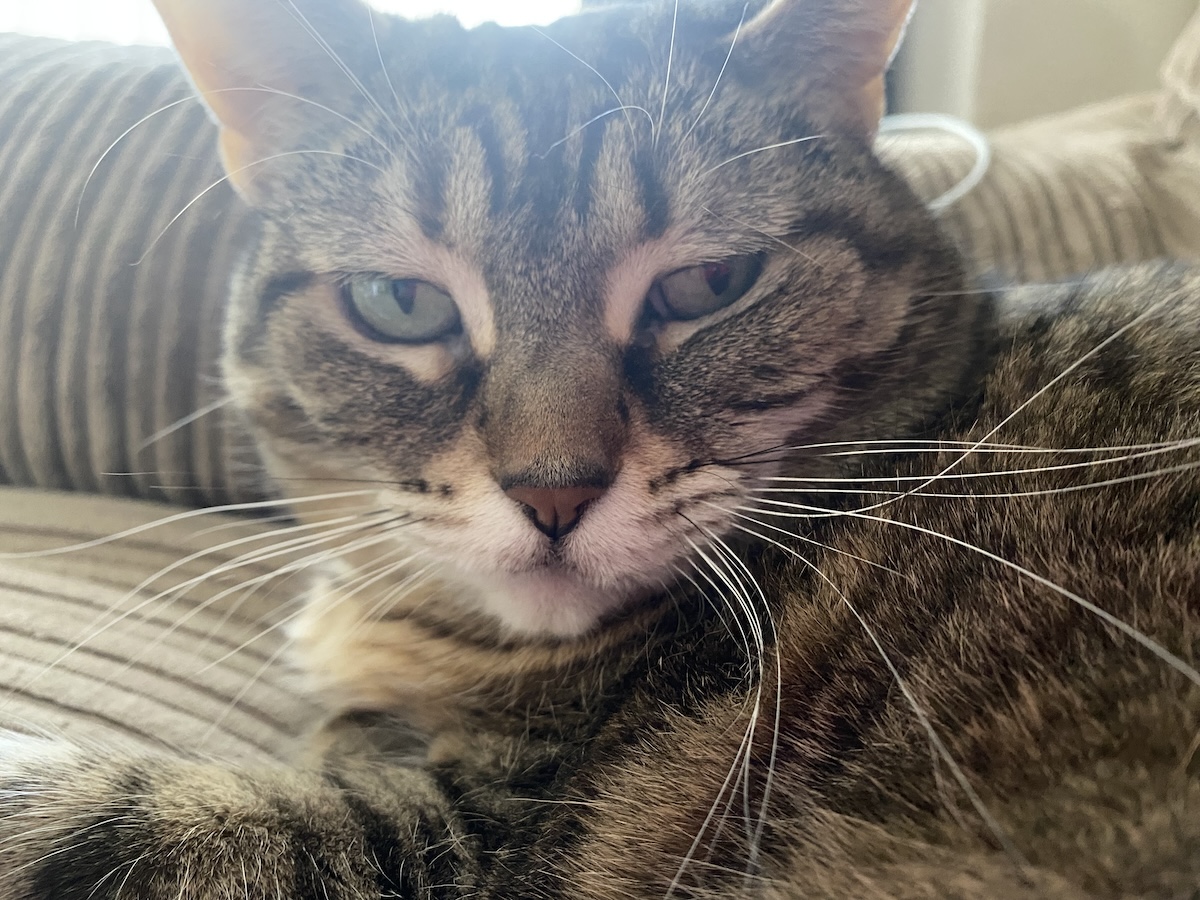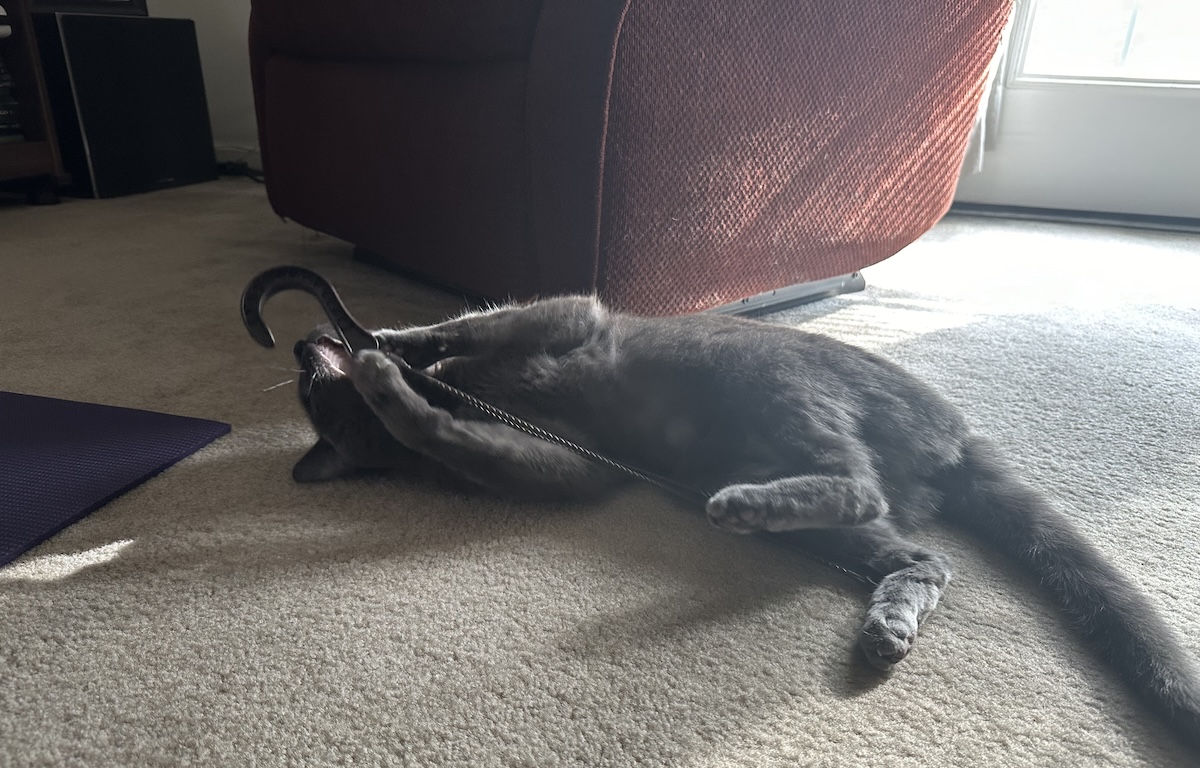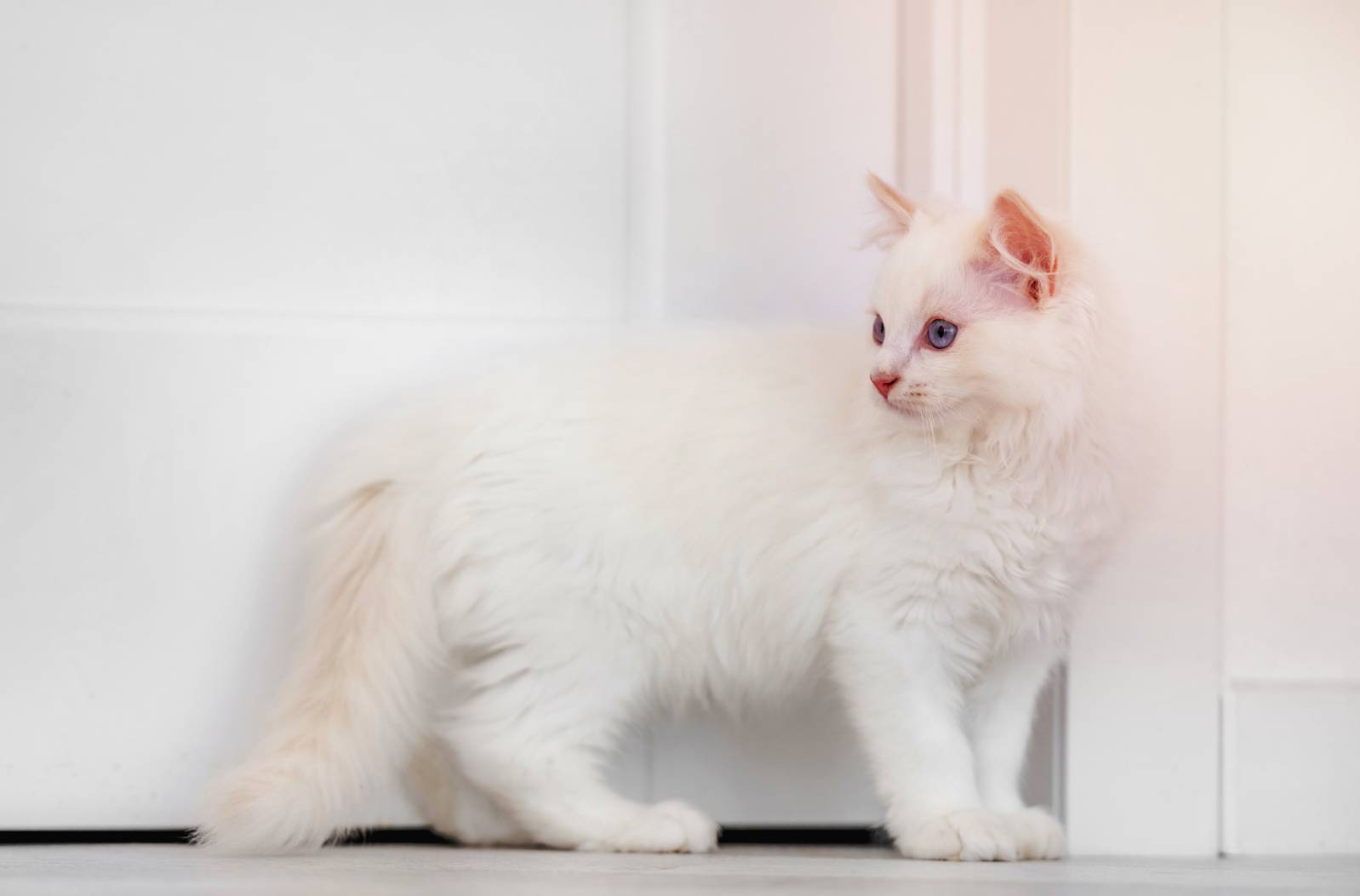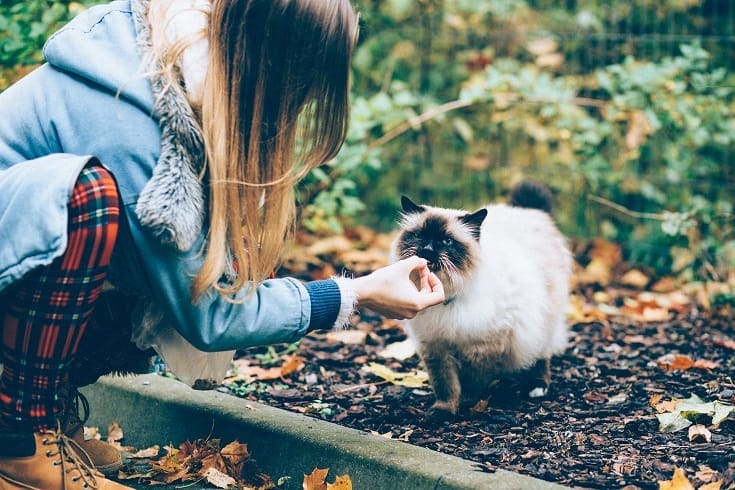
But there is a way that you can help prevent this miserable situation, and that’s through the use of probiotics.
Probiotics are live bacteria or yeast structures that are good for the body and gut health. They help with digestion and maintaining a healthy gut microbiome and an infection-free intestinal tract. We can find naturally occurring probiotics in dairy products and fermented foods.
But what are the best probiotics for cats? After all, their diets don’t generally include sauerkraut and yogurt. There are many options available, though not all of them are top-notch.
So, we put together this list of reviews of the best probiotics for cats available on the market today. Hopefully, you’ll find exactly the right one for your cat. There’s also information on what to look for in a feline probiotic.
 A Quick Comparison of the Winners in 2024
A Quick Comparison of the Winners in 2024
| Image | Product | Details | ||
|---|---|---|---|---|
| Best Overall |
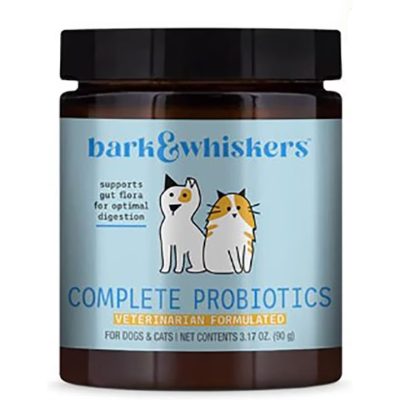
|
Dr. Mercola Bark & Whiskers Complete |
|
CHECK PRICE |
| Best Value |
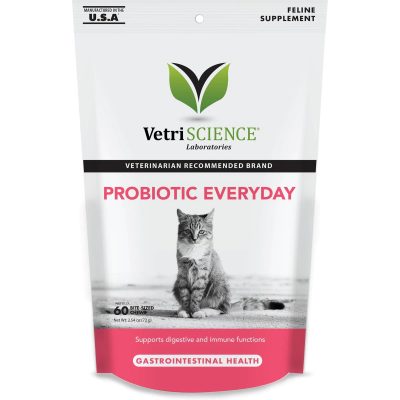
|
VetriScience Probiotic Everyday Cat Chews |
|
CHECK PRICE |
| Premium Choice |
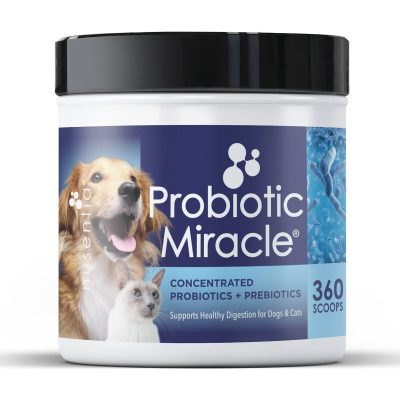
|
Nusentia Probiotic Miracle |
|
CHECK PRICE |
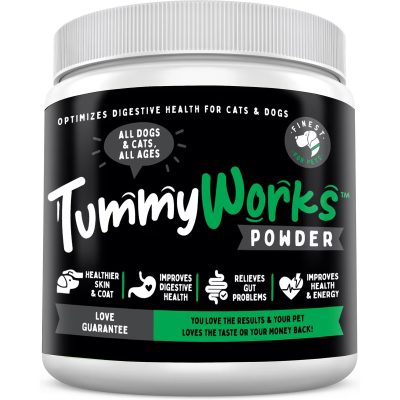
|
Finest for Pets TummyWorks |
|
CHECK PRICE | |
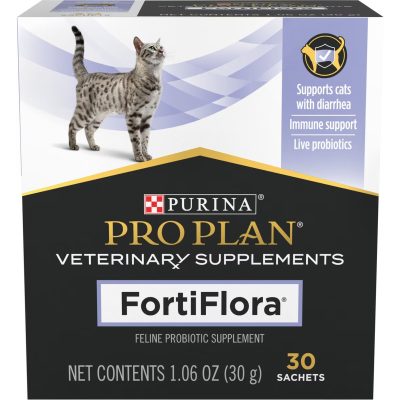
|
Purina Pro Plan Veterinary Diets FortiFlora |
|
CHECK PRICE |
The 10 Best Probiotics for Cats
1. Dr. Mercola Bark & Whiskers Complete Probiotics Cat Supplement
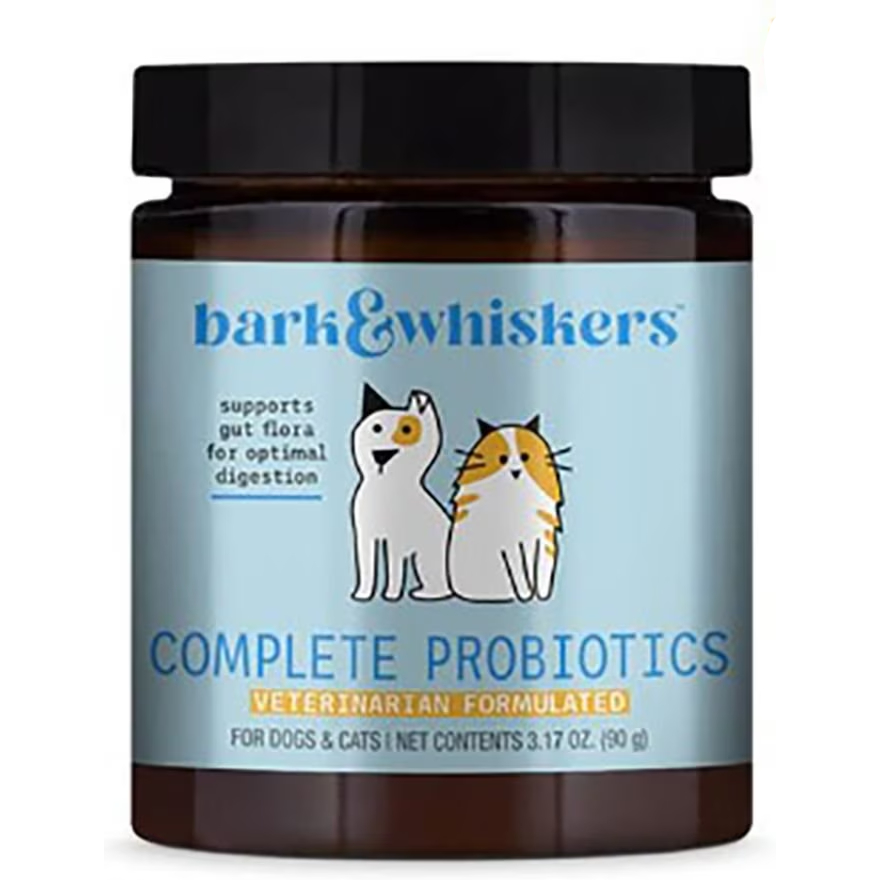
When it comes to CFUs per serving, there’s no other entry on our list that can even compare. Bark and Whiskers Complete Probiotics boasts over a whopping 38 billion CFUs per serving! This particular formula brings together 14 of the best probiotics for cats into a single blend. It is also free from corn, wheat, gluten, or soy.
However, this kind of power comes at a cost. It’s far from the cheapest option on this list; however, for the amount and spectrum of probiotics, it is well worth it. Also, it claims to have no flavor at all when mixed into your cat’s food. But that doesn’t seem to be the case. Picky eaters can tell it’s there.
- Over 38 billion CFUs per serving
- 14 probiotics in a single blend
- No flavor when mixed with cat food
- Expensive but worth it
- Not good for picky eaters
2. VetriScience Probiotic Everyday Cat Chews — Best Value
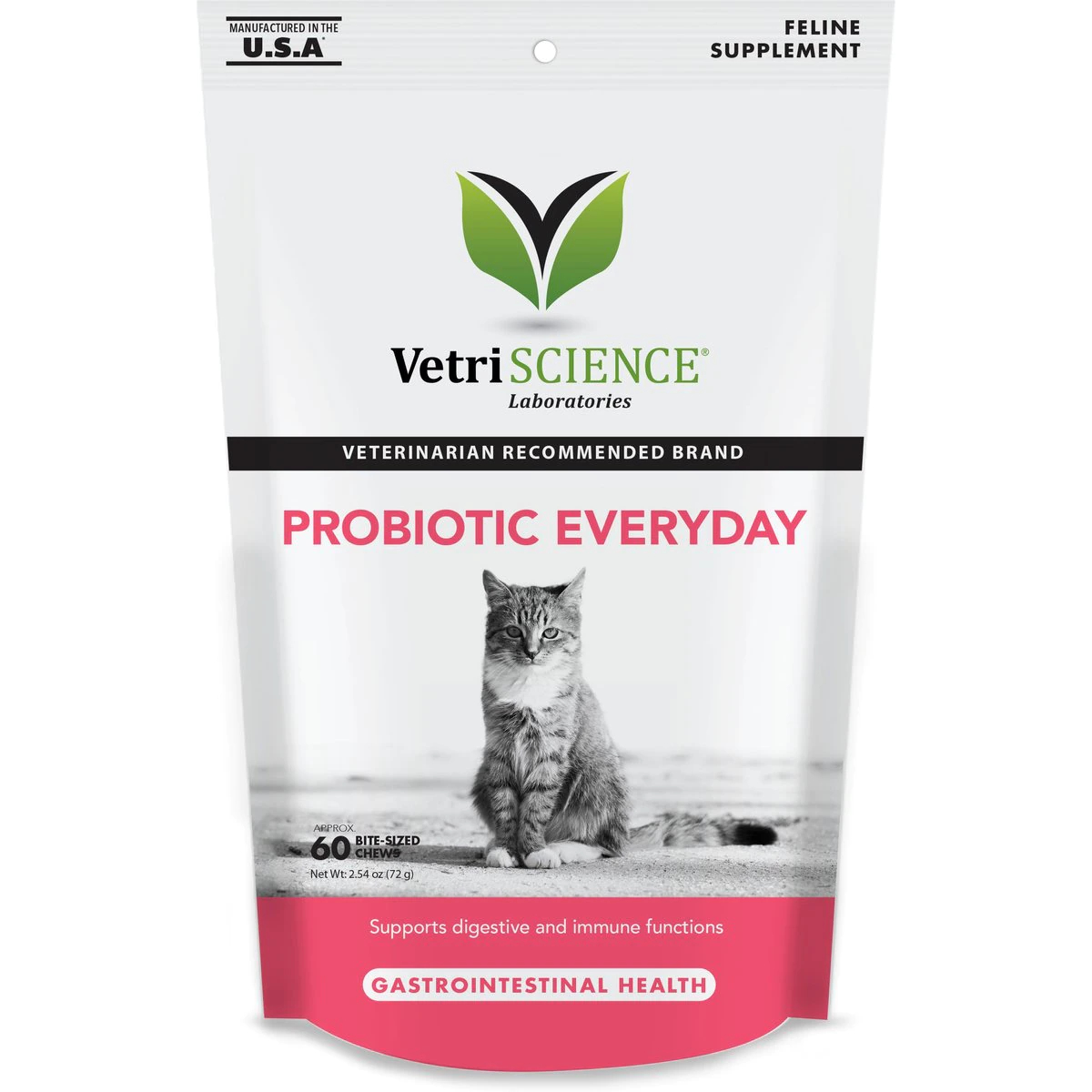
One of the most common reasons that cat parents don’t give their loved ones probiotics is the cost. However, VetriScience Probiotic Everyday Cat Chews throws that excuse right out the window. It’s easily the best cat probiotic for the money available. It’s not just cheap either.
This probiotic comes in the form of a little bite-sized chew akin to a soft cat treat. This makes them super easy to administer to your kitty. Simply replace one of their daily treats with one of these probiotic chews. They’re also flavored with hydrolyzed duck flavor, so there’s less chance of any food allergy.
While they don’t contain one of our favorite probiotic strains for cats, it does have Bacillus coagulans (100 million CFUs’ worth) which helps to ease stomach pain and reduce gas. The chew is also loaded down with prebiotics in the form of fructooligosaccharides (FOS) that amplify the effects of the probiotics.
The biggest downside to these is that they’re hit or miss with your cat when it comes to flavor and texture. Some cats will just want to spit these out the first chance they get. However, there is a workaround if you’re still looking to give these a try. Crumble up the chew and mix it in with your cat’s food.
- Duck-flavored soft chew
- Great value
- Cheap
- Contains FOS
- Flavor and texture not suitable for some cats
3. Nusentia Probiotic Miracle Cat Supplement — Premium Choice
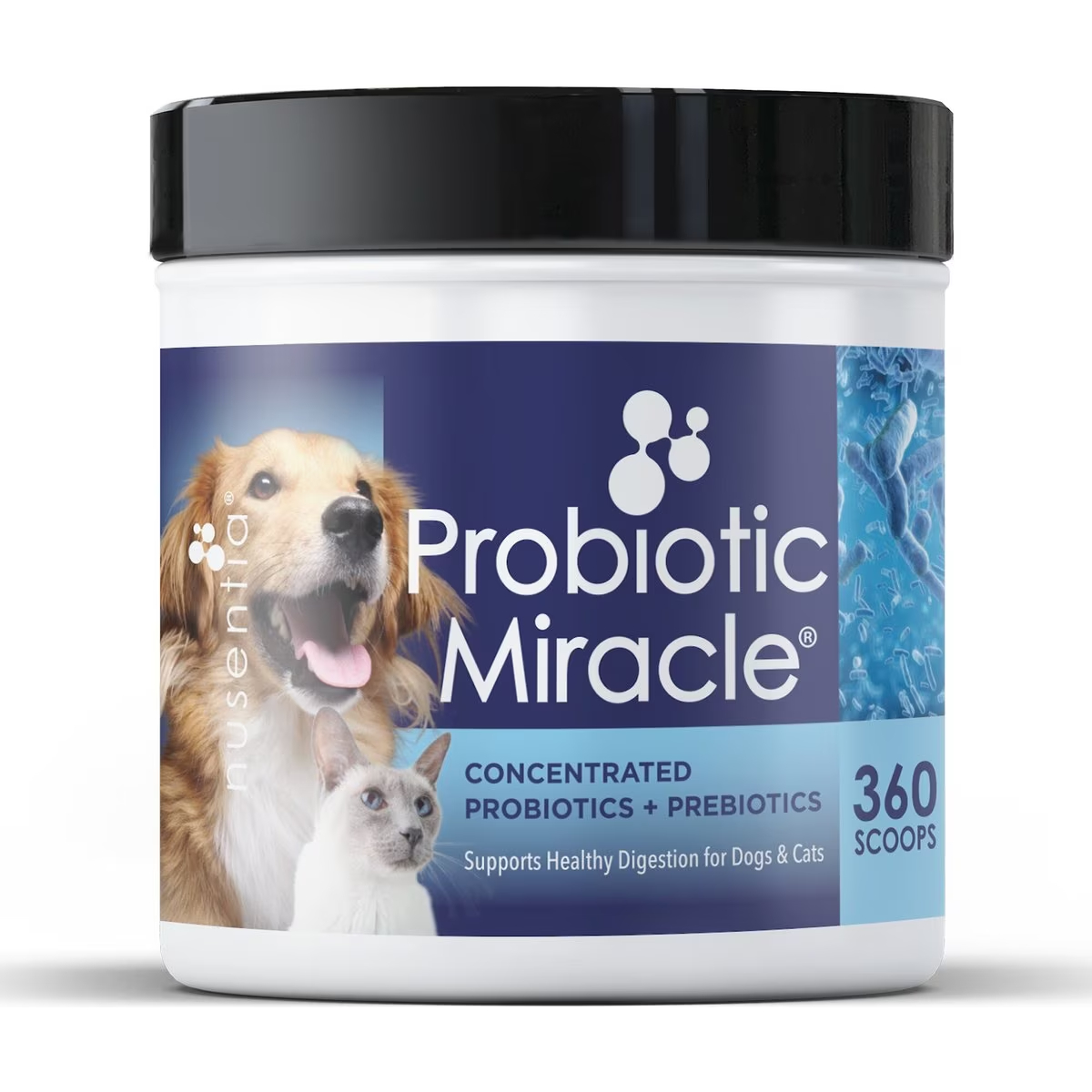
If you’re looking to go the extra mile with your cat’s probiotic supplements, you might want to check out Nusentia Probiotic Miracle Cat Supplement. It’s a top-of-the-line probiotic blend that works for both dogs and cats, which makes it great for multiple-species households. But what makes it so premium?
Instead of having a single probiotic strain, this supplement includes six different strains to help promote the best gut health around. With this many strains, it’s easy to see how each scoop of this probiotic powder contains over 1 billion CFUs! Also, this formula contains naturally occurring FOS from chicory to help amplify their effects.
However, there are a couple of downsides to this product that keep it out of our top spot. First, it’s expensive and not widely accessible to all budgets. Second, it’s not the most appealing on this list. So, while you may be able to afford it, your cat might not want to touch it.
- Six different probiotic families
- Contains natural FOS
- Over 1 billion CFUs per serving
- Expensive
4. Finest for Pets TummyWorks Probiotics
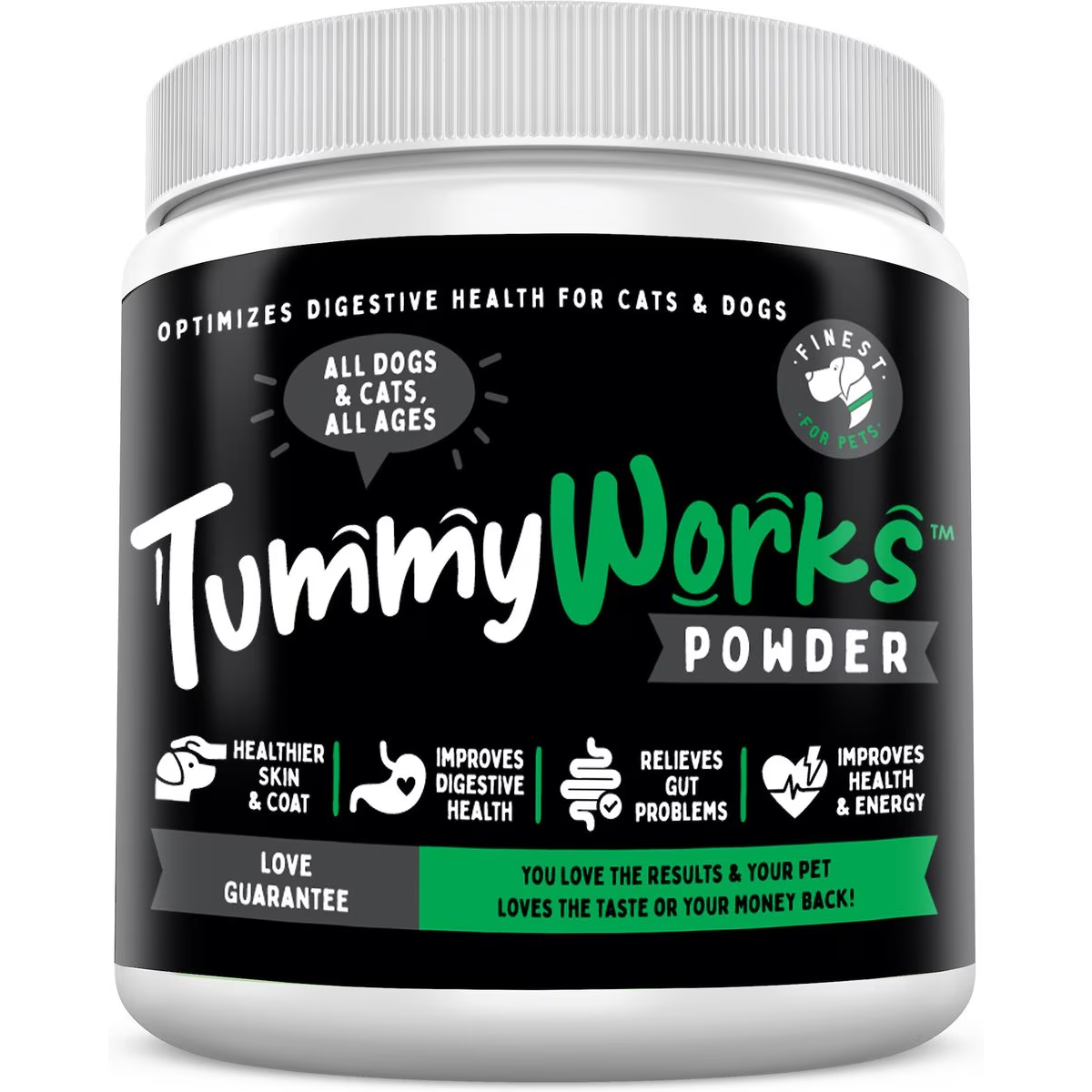
Sometimes, you don’t need to go the extra mile when it comes to shopping for your cat’s probiotic. A simple supplement may be all that you want to give them. If so, Finest for Pets TummyWorks Probiotics works just great.
It’s a relatively affordable powder that packs a sheer wallop when it comes to strain families. It comes with 10 different varieties of probiotics with 2 billion CFUs per scoop. However, they don’t include any of our top strain families for cats, which is kind of a bummer. Although there’s an overload of probiotics, it’s not as effective as our top choice for helping control stool or gut issues. It also contains digestive enzymes to aid your cat’s digestion.
Thankfully, it does include plenty of prebiotic compounds to help accentuate the power of the product and make up for its lack of cat-orientated compounds. At the end of the day, this probiotic is great for those looking to give a wellness boost to their little ones.
- 10 different probiotic families
- 2 billion CFUs per scoop
- Digestive enzymes included
- Doesn’t include our top strain varieties
5. Purina Pro Plan Veterinary Diets FortiFlora Probiotic — Best Overall
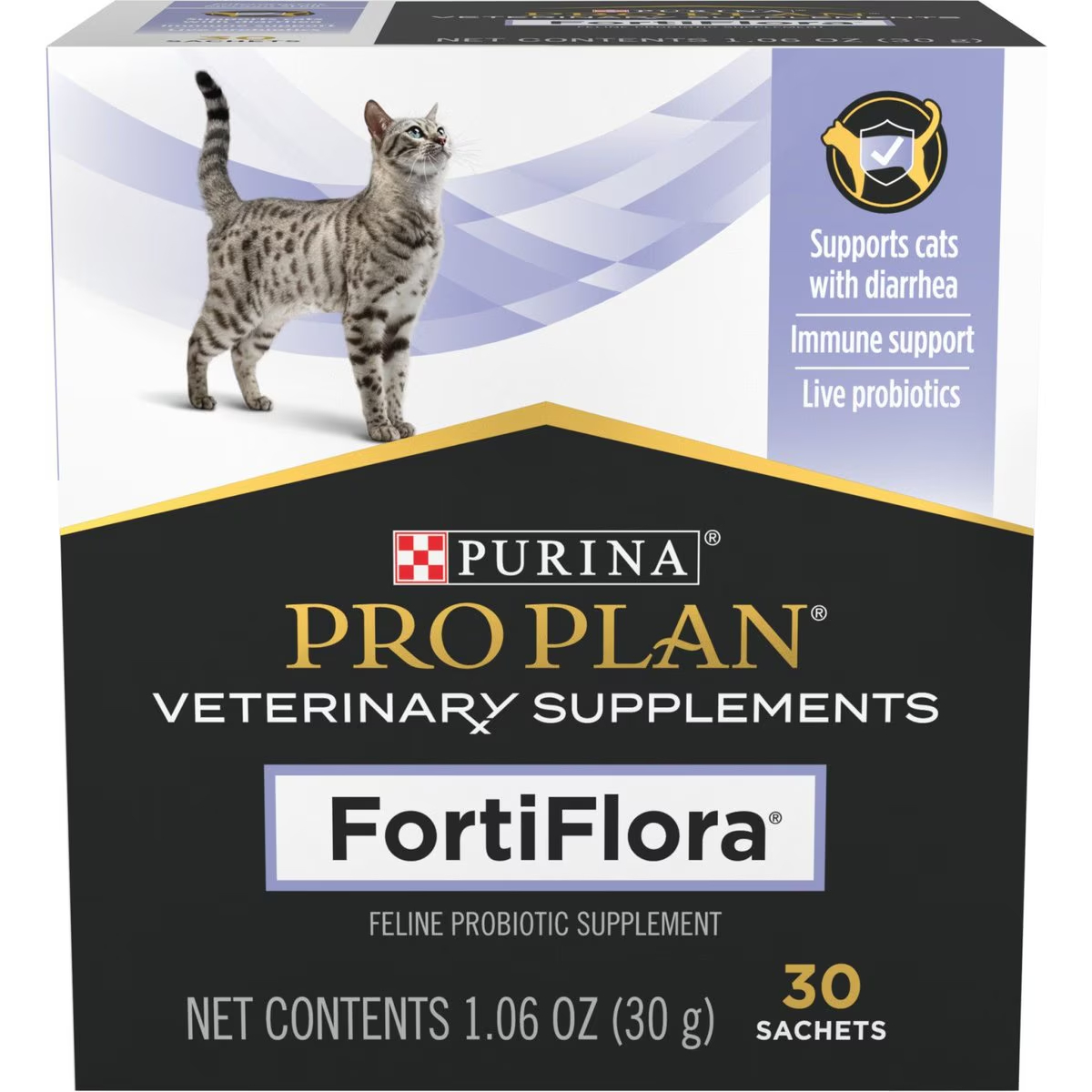
If we had to choose just one probiotic to give to our cats, it would be this one. Purina Pro Plan Veterinary Diets FortiFlora Probiotic is an incredible option. It comes in the form of a probiotic powder in individual sachets. To feed it to your cat, simply sprinkle it on top of their food.
A single sachet of this stuff comes loaded with 100 million colony-forming units (CFUs) of healthy gut bacteria. It carries one of our favorite strain families—Enterococcus faecium—which helps your cat stay regular.
Don’t worry about your cat not liking the powder. There are very few cats around that can resist its liver flavor.
It’s also relatively inexpensive. For just around a dollar a day, you can ensure that your furball gets their daily dose of probiotics to help them thrive. There’s little negative to say about this product. Sure, there will be rare instances where your cat might not enjoy it. But nothing’s perfect.
All in all, we think that these are the best overall probiotics for cats.
- 100 million CFU in a single sachet
- Irresistible liver taste
- Relatively cheap
- Contains Enterococcus
- Rare instances of cats not liking it
6. Animal Essentials Plant Enzyme & Probiotics Cat Supplement
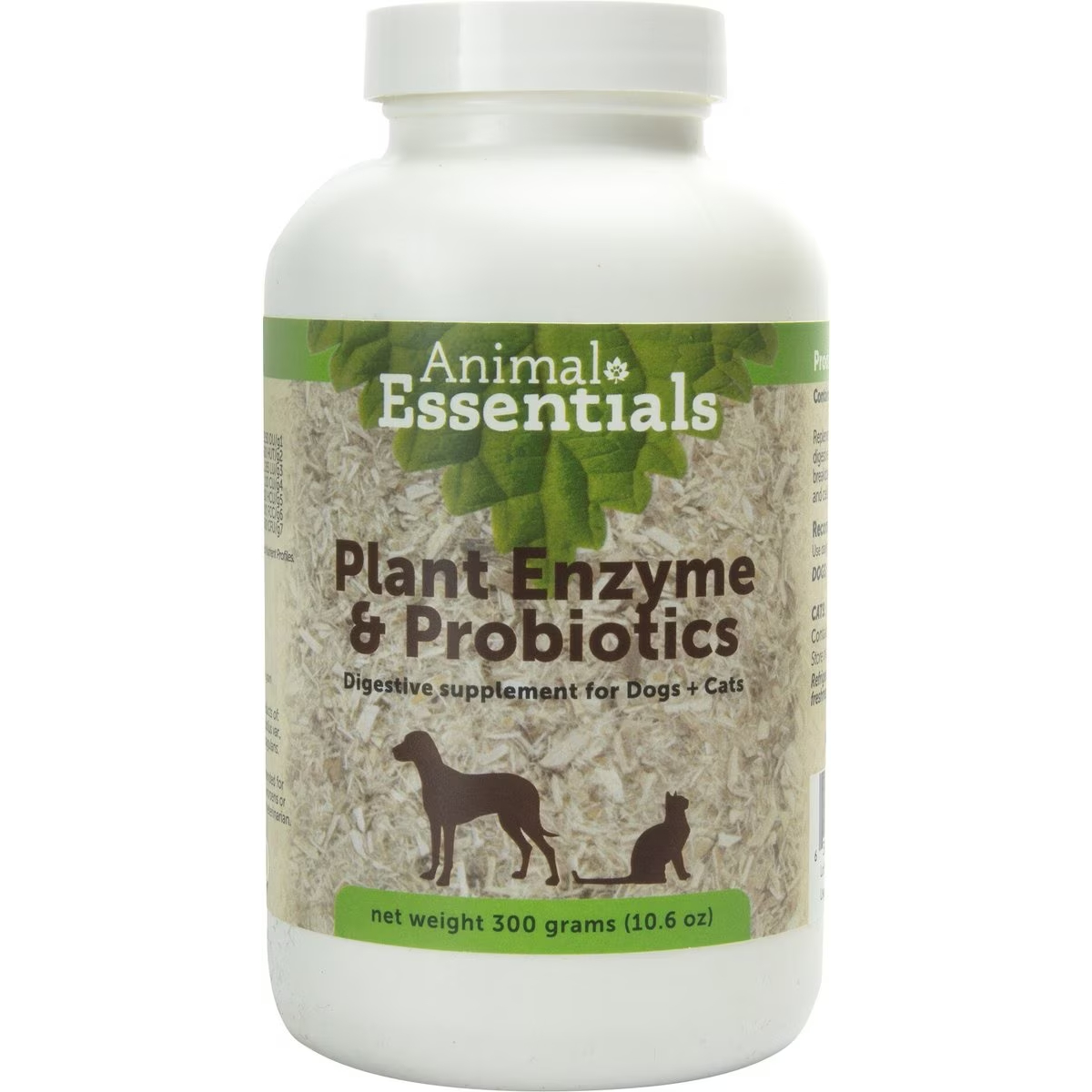
This entry on our list is a bit different than the rest because Animal Essentials Plant Enzyme & Probiotics Cat Supplement. The main components of this product are digestive enzymes to assist with food digestion and absorption, and it contains some probiotics. While this product is mostly plant-based and cats are strictly carnivores, there’s nothing dangerous about feeding your cat this supplement if it is recommended by your vet. It comes in a powder form that can be easily mixed in with one of your cat’s meals.
However, picky cats may not like this one. There’s no real “meat” flavoring, which is what cats desire. There have been cases where cats have lost weight while on this probiotic. This could be the desired effect for overweight felines. But if your cat is of normal build, you might want to forgo this powder.
- Digestive enzymes
- Probiotics
- Cats may not like this flavor
- Can cause a cat to lose weight
7. Pet Naturals of Vermont Daily Probiotic Cat Chews
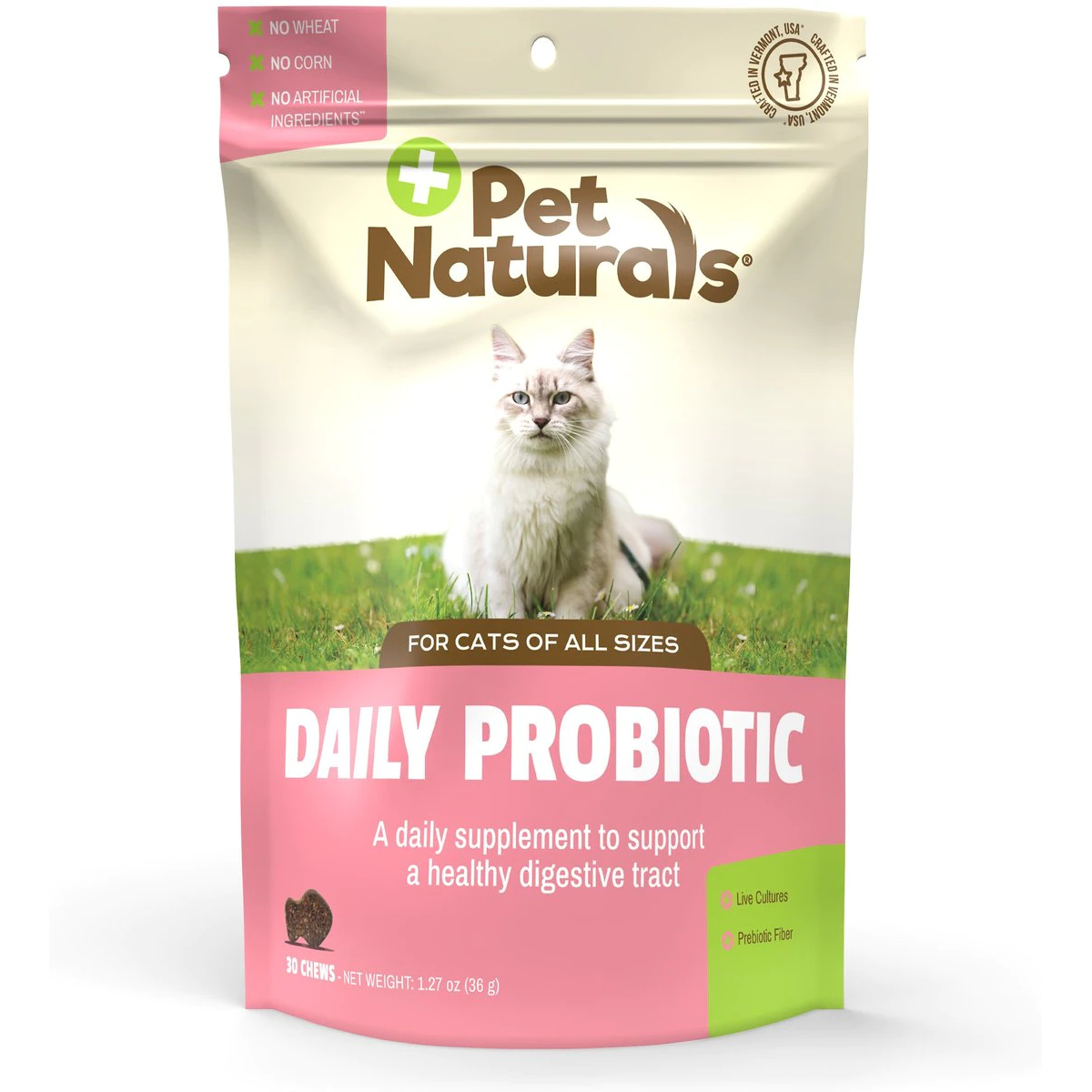
If your cat doesn’t take to probiotic powders too well, Pet Naturals of Vermont Daily Probiotic Cat Chews could be a viable alternative. They provide 120 million CFUs with every chew and are designed to help your cat combat indigestion and diarrhea.
The chews are duck flavored and provide a combination of probiotics and prebiotic compounds, though none of our top strain families. They’re also extremely cheap. They cost less than our best-value choice. But there are a few reasons that they’re further down the list.
First, these chews are completely packed with flour. Five out of the seven top ingredients of this product are flour, and the meals are made from either oats, rye, barley, or rice. This is not ideal for cats. Second, these don’t have the mass flavor appeal that other probiotics have. Lastly, the texture of these chews makes them difficult to eat. They’re not soft nor crunchy but instead have a rubber-like texture.
- Very cheap
- 120 million CFUs per serving
- Packed with flour
- Rubbery texture
8. NaturVet Advanced Probiotics & Enzymes Powder
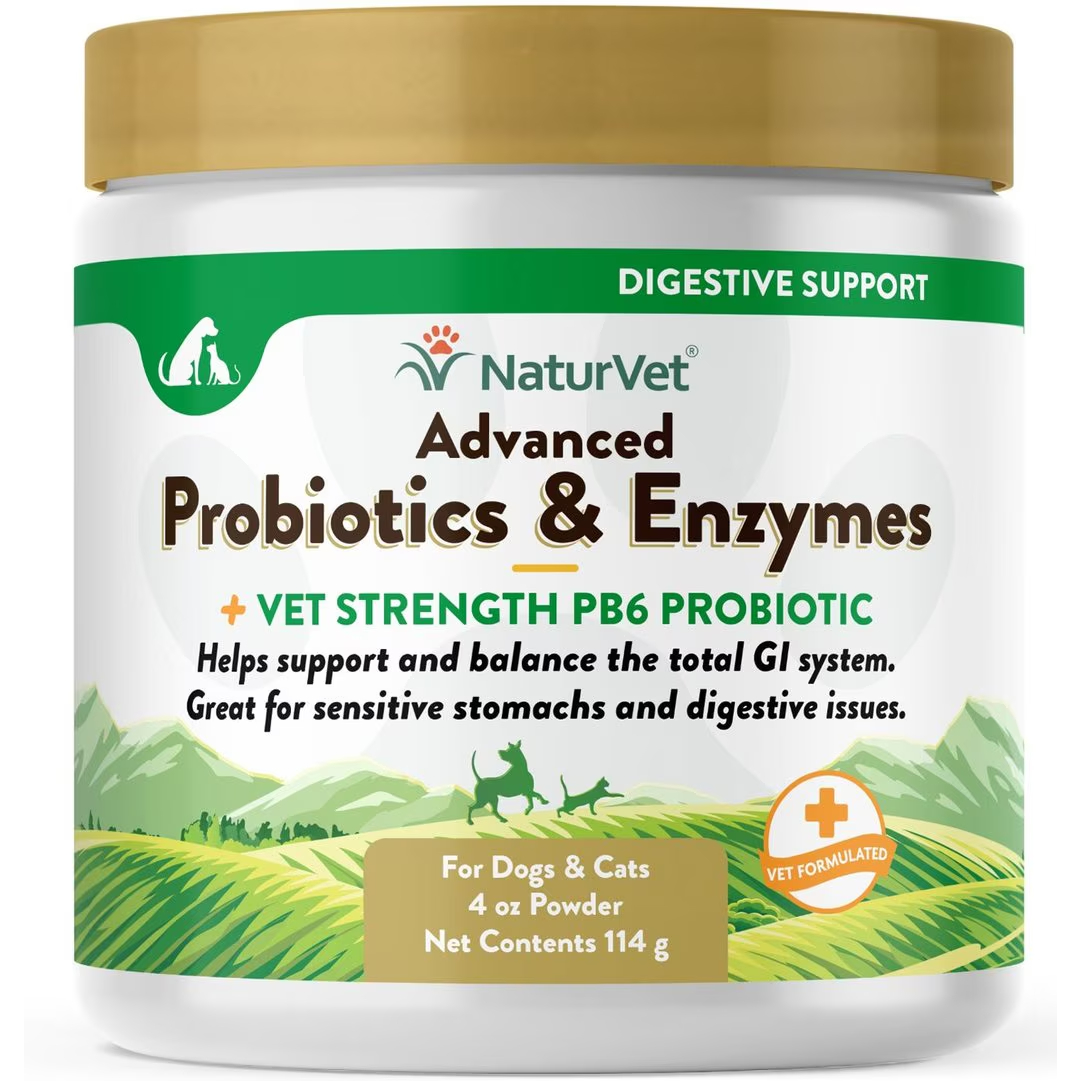
NaturVet Advanced Probiotics & Enzymes Powder is to be mixed in with your cat’s food. It claims to provide more than 1 billion CFUs per scoop and at a veterinary strength. However, when it comes to probiotics, don’t be fooled by language such as “veterinary strength.” This is clearly a marketing strategy they are using. That being said, NaturVet isn’t a terrible product.
It’s specifically designed for cats and dogs with sensitive tummies and promotes gut health in a way that’s gentle on them. However, there are only two different strain families of probiotics in this formula, neither of which are among our most coveted.
- Over 1 billion CFUs per scoop
- Designed for cats with sensitive stomachs
- Misleading sales language
- Only two types of probiotics that aren’t among the best for cats
9. VetOne Advita Probiotic Nutritional Cat Supplement
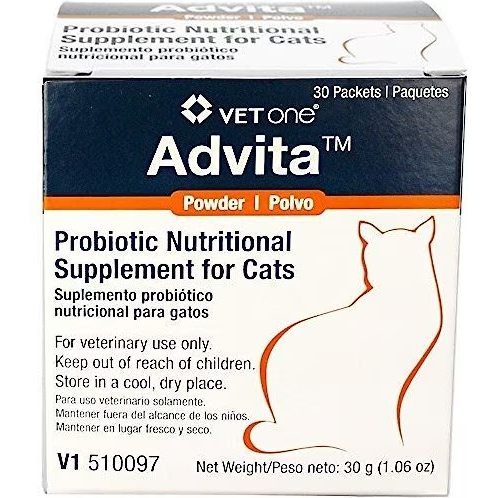
At first glance, this probiotic formula looks very official and appears to be a prescription supplement. However, the VetOne Advita Probiotic Cat Supplement isn’t one at all. The formula is an OTC powder that contains four different active cultures and prebiotic inulin at 200 million CFUs per serving.When compared to other powders, it is relatively cost-efficient, especially since it also contains vitamins A, E, and C and taurine.
However, the major downfall of this probiotic is that the blend is made with poultry liver powder. While tons of cats love liver, many cats are allergic to chicken.
- Four different active cultures
- 5 billion CFUs per serving
- Affordable
- Contains Vitamins A, E, C
- Contains Taurine
- Made with poultry liver, a hit-or-miss flavor
10. Fera Pet Organics Probiotics
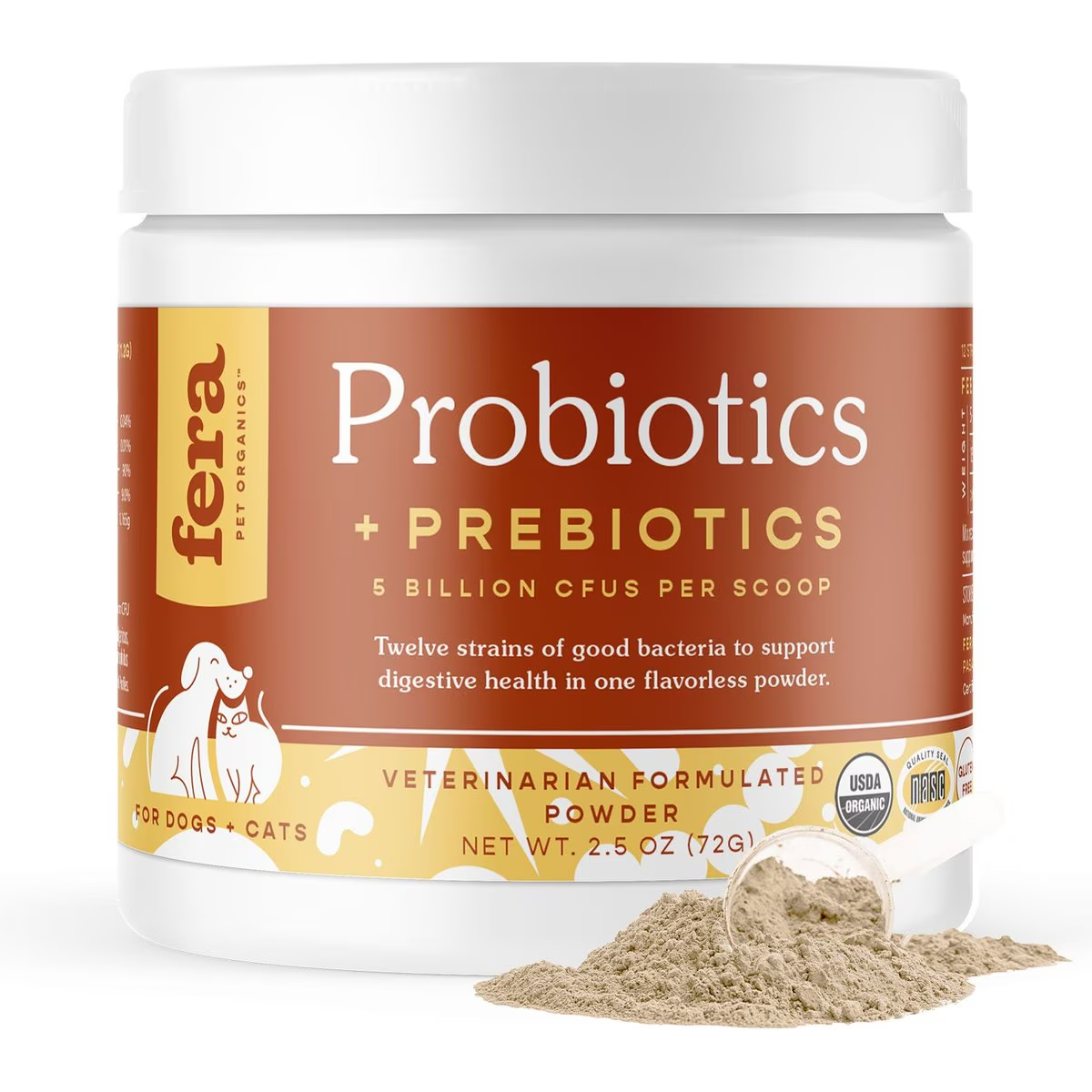
Fera Pet Organics Probiotics has a USDA organic certification. It’s another option with microbial probiotics plus prebiotics from different plant sources that are safe for cats. It’s even got 5 billion CFUs per serving with 12 different strains of probiotics. Also, this product is third-party tested.
However, the Fera Pet probiotics don’t seem to work for all cats. Many pets refuse to ingest it. Also, the product may simply require long-term use to see any results. Owners should typically start seeing results within 2 weeks.
- 12 different strains of probiotics
- 5 billion CFUs per serving
- USDA Organic certified
- Picky cats might refuse to ingest it
Buyer’s Guide: How to Choose the Best Probiotics for Cats
As you can see, there are many different probiotics available for your cat. But let’s take a closer look into what probiotic strains are best for cats, the incredible benefits they can have, and which cats can and should take them in the first place.
What to Look for When Choosing a Probiotic
There are several different factors you need to consider when shopping for a probiotic for your cat.
- Form: This is probably going to be the trickiest part of shopping for a probiotic. Probiotics can come in many forms, including powder or gel. However, cats can be quite picky when it comes to textures, so it may take some trial and error before you find the right one for your cat.
- CFUs: When it comes to probiotics, the higher the CFUs, the better. More colony-forming units found within your cat’s probiotic will equate to its potential effectiveness.
- Strain: There are many different strains when it comes to probiotics, each with different characteristics and impact in your cat’s digestive system and overall health.
- NASC Quality Seal: The National Animal Supplement Council is a nonprofit group dedicated to ensuring the safety and quality of pet products. Any probiotic that’s earned its seal of approval is likely to be a great candidate.
- Price Point: You need to consider your budget when looking for a probiotic. Fortunately, probiotics can run the entire spectrum of affordability, so there’s bound to be one that’s perfect for your finances.
What Are the Best Strains of Probiotics for Cats?
Probiotics don’t just come in a single catch-all strain. There are several different variations. However, there are two in particular that happen to be especially helpful for felines.
- Enterococcus: This strain group is one of the major lactic acid-producing bacteria that has an important role in controlling your cat’s digestive system. Enterococcus probiotics have a direct impact on the formation of “normal” fecal matter.
- Bifidobacterium bifidum: It’s the bacterial strain group that is present in higher numbers in the gut of healthy cats when compared to those with irritable bowel syndrome.
There are strain groupings other than these, of course, but when you’re searching for your cat’s probiotic, you’ll want to make sure that at least these two are involved.
Benefits of Probiotics for Cats
There’s more to probiotics than just keeping your cat’s bowels in check. There are many different exciting benefits that probiotics can provide your cat. Here are some of the major areas that they deal with:
- Better Gut Health: Believe it or not, the good bacteria that live inside your cat’s digestive system help keep it running smoothly. Probiotics are super effective at controlling gas, diarrhea, vomiting, indigestion, and even loss of appetite.
- Stronger Immune System: It’s been shown that gut health has a direct correlation to immune health. The stronger your digestive system, the stronger your immune system, and vice versa.
- Weaker Allergic Reactions: Although there are several theories, there’s no clear-cut answer as to why probiotics lessen the degree of allergic reactions. However, the effect is real. So, if your cat suffers from skin or food allergies, probiotics may be a viable solution.
- Post-Illness Recovery: There’s a chance that if your cat does pick up a bacterial infection, your vet will prescribe antibiotics. Antibiotics are great at eradicating harmful bacteria, but they can also take down some of the good ones. Taking probiotics afterward will help your cat reestablish the status quo of their digestive tract.
Can All Cats Use Probiotics?
Probiotics are amazing, but are they amazing for all cats? There’s been no evidence to show that probiotics are anything but helpful for your feline friend! However, you shouldn’t just take our word for it.
Be sure to communicate your desire to give probiotics to your cat with their veterinarian. They may even give out their recommendation as to which is best for your situation. Just remember, your kitten needs to be at least 6 weeks old to start taking probiotics.
How Long Does It Take for Probiotics to Start Working?
While probiotics might seem like nature’s miracle, they can’t perform instantaneous magic. They take a little while to start working. You might see some results within a few days, but normally, it takes a couple of weeks for results to truly be prominent.

Final Thoughts
Hopefully, this article has helped to shed some light on probiotics and their effect on cats. We understand that there are tons of options available. But through these reviews, we believe that you’ll be able to make an informed decision on which choice is best for your furry friend.
Our favorite recommendation is the Bark and Whiskers Complete Probiotics. It’s an amazing choice due to its surefire efficacy in combating diarrhea and ensuring your cat has a clean bill of health.
But if you’re looking for a cheaper alternative for preventative care, we’re standing behind VetriScience Probiotic Everyday Cat Chews as the best cat probiotic for the money. They’re affordable enough to give your cat one a day and provide tons of value for your cat’s health.
Whatever option you choose, be sure to consult with your vet first. They’ll be able to provide you with more details as to which is best for your cat. However, one thing is certain: Probiotics are an amazing way to help give your kitten an advantage in their life!
Featured Image Credit: freestocks-photos, Pixabay
Contents
- A Quick Comparison of the Winners in 2024
- The 10 Best Probiotics for Cats
- 1. Dr. Mercola Bark & Whiskers Complete Probiotics Cat Supplement
- 2. VetriScience Probiotic Everyday Cat Chews — Best Value
- 3. Nusentia Probiotic Miracle Cat Supplement — Premium Choice
- 4. Finest for Pets TummyWorks Probiotics
- 5. Purina Pro Plan Veterinary Diets FortiFlora Probiotic — Best Overall
- 6. Animal Essentials Plant Enzyme & Probiotics Cat Supplement
- 7. Pet Naturals of Vermont Daily Probiotic Cat Chews
- 8. NaturVet Advanced Probiotics & Enzymes Powder
- 9. VetOne Advita Probiotic Nutritional Cat Supplement
- 10. Fera Pet Organics Probiotics
- Buyer’s Guide: How to Choose the Best Probiotics for Cats
- What to Look for When Choosing a Probiotic
- What Are the Best Strains of Probiotics for Cats?
- Benefits of Probiotics for Cats
- Can All Cats Use Probiotics?
- How Long Does It Take for Probiotics to Start Working?
- Final Thoughts


 A Quick Comparison of the Winners in 2024
A Quick Comparison of the Winners in 2024



